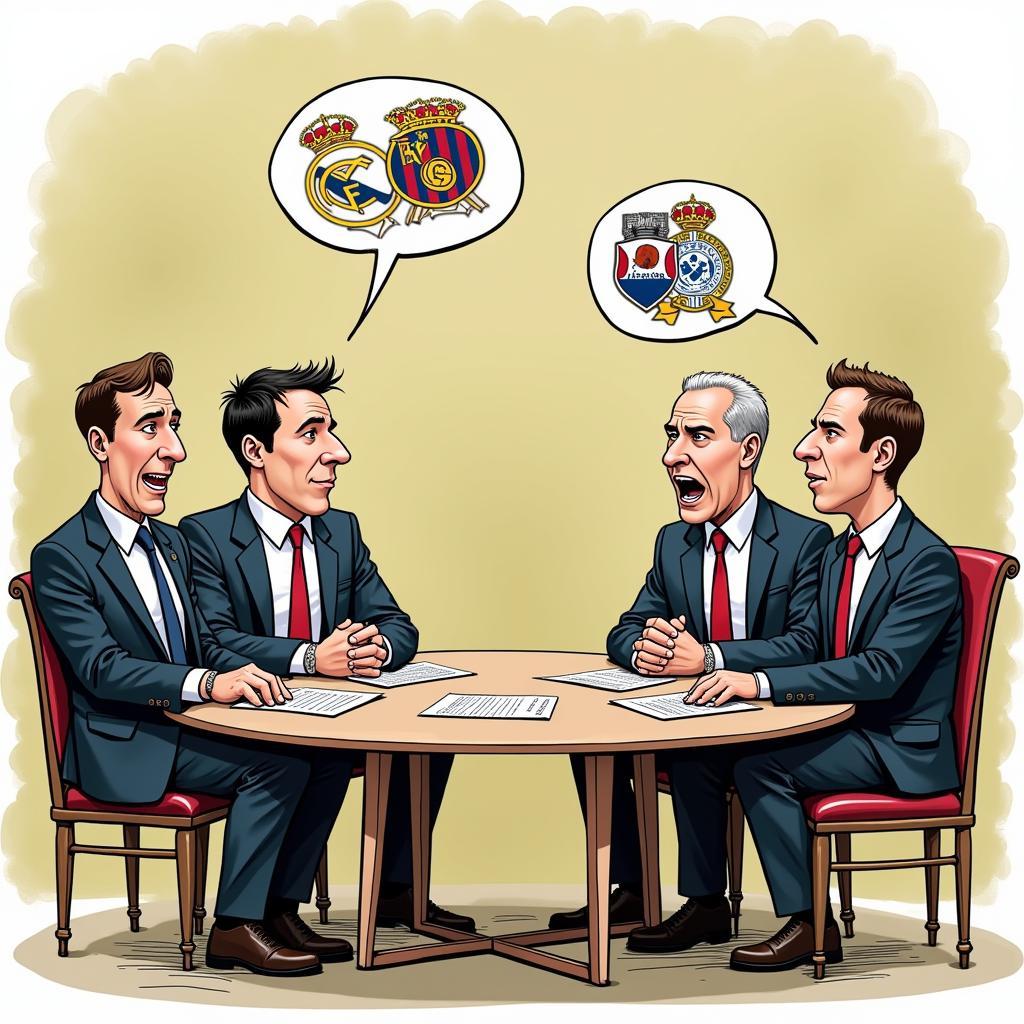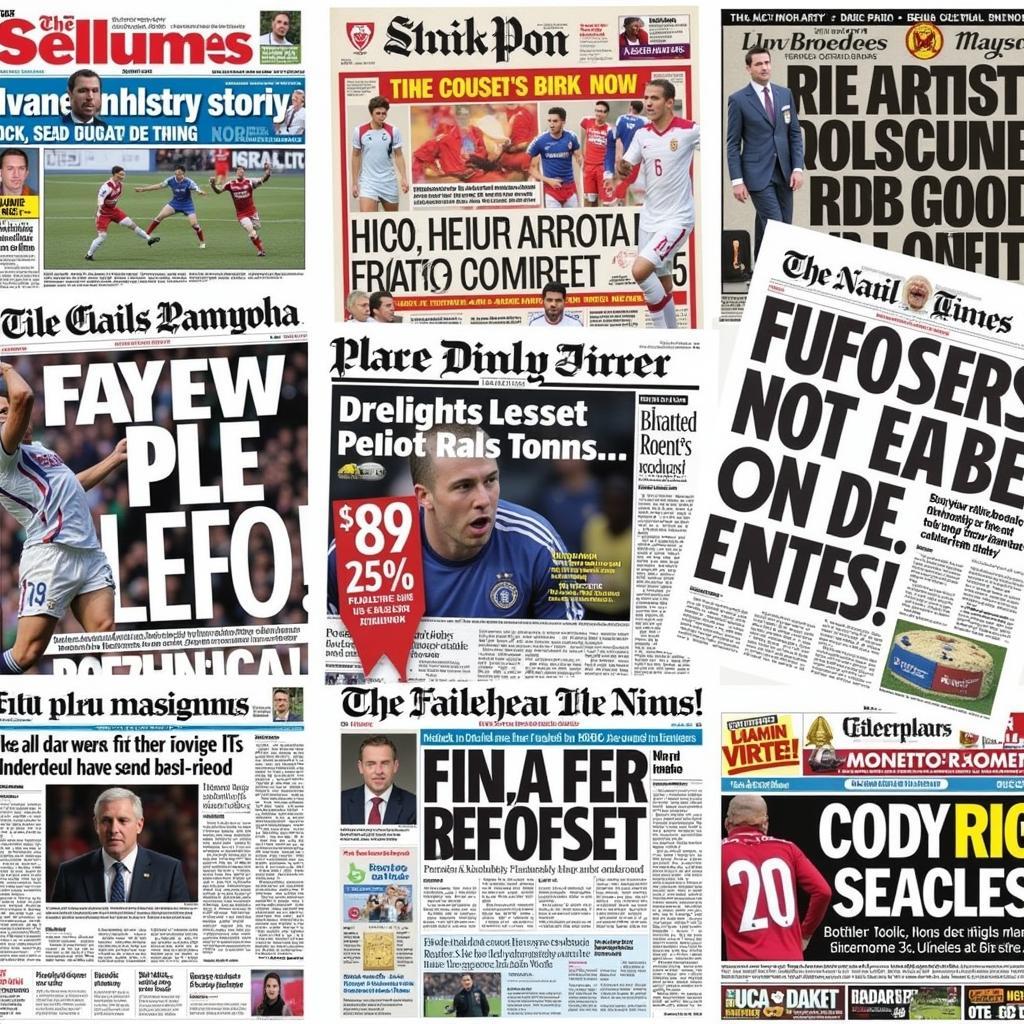Players Refusing to be Sold: A Look Inside the Complex World of Football Transfers
January 13, 2025When a club decides to sell a player, it’s often assumed the player will comply. However, there are situations where players refuse to be sold, leading to complex negotiations, media speculation, and fan unrest. This article delves into the reasons behind these refusals, exploring the power dynamics, contractual obligations, and personal motivations that come into play when a player says “no” to a transfer.
Why Players Might Refuse a Sale
There are several reasons why a player might resist a transfer, ranging from personal attachments to contractual stipulations. Let’s unpack some of the most common motivations behind a player’s decision to stay put.
-
Loyalty and Club Connection: Some players develop a deep bond with their club and its fans. They might feel a sense of loyalty, a desire to continue contributing to the team’s success, or a genuine love for the city and community. This can make leaving, even for a more lucrative offer, a difficult decision.
-
Contractual Stability and Obligations: A player’s contract is a legally binding agreement. If the contract doesn’t include a release clause or other stipulations regarding transfers, the club can’t force a move. The player is within their rights to see out their contract, regardless of the club’s wishes.
-
Family Considerations and Personal Preferences: Moving to a new club often means relocating family, disrupting children’s education, and adapting to a new environment. These personal factors can heavily influence a player’s decision, particularly if they are settled and happy in their current location.
-
Sporting Ambitions and Career Trajectory: A player might reject a transfer if they believe it would be detrimental to their career progression. This could be due to the new club’s playing style, league competitiveness, or lack of Champions League football, for example. Players prioritize their development and aim for opportunities that align with their long-term goals.
-
Lack of Desire for Change: Sometimes, the simplest explanation is the most accurate. A player might simply be content at their current club and see no compelling reason to leave. They might be happy with their playing time, their relationship with the manager, and their overall situation.
The Power Dynamics in Transfer Negotiations
Transfer negotiations are a complex dance involving the player, the selling club, and the potential buying club. When a player refuses to be sold, the power dynamics shift, and negotiations can become tense.
-
The Player’s Leverage: A player under contract holds significant leverage. Their refusal can stall the transfer process, forcing the clubs to renegotiate terms or explore alternative options. This leverage is particularly strong if the player is a key asset to the team.
-
The Club’s Perspective: Clubs are businesses, and player transfers are a crucial part of their financial strategy. When a player refuses a sale, it can disrupt their plans, impacting their budget and squad building for the upcoming season.
 Transfer Negotiation Standoff
Transfer Negotiation Standoff
Navigating the Fallout: Legal and Public Relations Implications
A player’s refusal to be sold can have significant legal and public relations repercussions. Managing these effectively is crucial for all parties involved.
-
Legal Standpoint: Contracts are legally binding. While clubs can exert pressure, they cannot force a player to leave against their will if the contract is valid. Legal disputes can arise if either party believes the contract has been breached.
-
Public Perception: The media and fans closely follow transfer sagas. A player’s refusal can be interpreted in various ways, from loyalty to greed. Managing public perception is essential to avoid damaging the player’s reputation or the club’s image.
 Media Scrutiny of Transfer Saga
Media Scrutiny of Transfer Saga
Conclusion: A Balancing Act
The decision for a player to refuse a sale is complex, involving a delicate balancing act between personal aspirations, contractual obligations, and the interests of the clubs involved. While clubs hold the power to initiate transfers, players retain the right to determine their own futures within the framework of their contracts. This dynamic creates a fascinating interplay of power, loyalty, and ambition, making the world of football transfers an unpredictable and captivating arena. Understanding the multifaceted nature of these situations allows for a deeper appreciation of the human element behind the headlines.
FAQ
- Can a club force a player to be sold?
- What is a release clause in a football contract?
- How do transfer negotiations typically work?
- What are the consequences of a player refusing a transfer?
- How does a player’s refusal affect their relationship with the club and fans?
- What role do agents play in transfer negotiations?
- Can a player be punished for refusing a transfer?
For further assistance please contact us: Phone: 0396443476, Email: [email protected] Or visit us at: 23 Tháng 3, Đắk Nia, Gia Nghĩa, Đắk Nông, Việt Nam. We have a 24/7 customer service team.